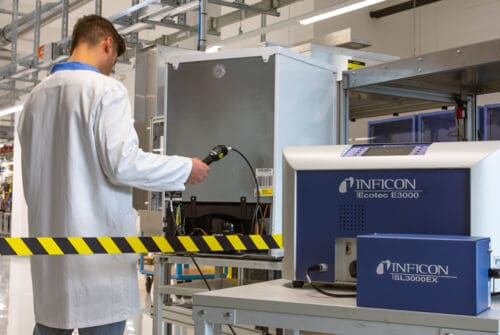Introduction:
Gas leaks pose significant risks to both residential and industrial settings, potentially leading to fires, explosions, and health hazards. To mitigate these dangers, the development and deployment of gas leak detector sensors have become increasingly vital. This article explores the importance of gas leak detector sensors, their functionality, applications, and advancements in technology aimed at enhancing safety in various environments.
Understanding Gas Leak Detector Sensors:
Gas leak detector sensors are devices designed to detect the presence of gas leaks in the surrounding environment. These sensors utilize various technologies, including electrochemical, semiconductor, infrared, and ultrasonic methods, to detect specific gases such as methane, propane, carbon monoxide, and hydrogen sulfide. Upon detecting a gas leak, these sensors trigger an alarm, alerting occupants or operators to the potential hazard.
Functionality and Operation:
The functionality of gas leak detector sensors depends on the underlying technology employed. Electrochemical sensors utilize chemical reactions to detect gases, while semiconductor sensors rely on changes in electrical conductivity. Infrared sensors detect gases by measuring their absorption of infrared radiation, while ultrasonic sensors detect gas leaks by analyzing changes in sound waves caused by escaping gas.
Applications in Residential Settings:
In residential settings, gas leak detector sensors are commonly installed in areas where gas-powered appliances are present, such as kitchens, water heaters, and furnaces. These sensors provide early detection of gas leaks, allowing occupants to evacuate safely and prevent potential disasters. Additionally, smart home integration enables real-time monitoring and remote notifications, enhancing convenience and peace of mind for homeowners.
Industrial and Commercial Applications:
Gas leak detector sensors play a critical role in industrial and commercial settings where the risk of gas leaks is higher due to the presence of industrial processes, storage facilities, and pipelines. These sensors are utilized in factories, chemical plants, refineries, and laboratories to monitor gas levels and ensure compliance with safety regulations. Advanced sensor networks enable continuous monitoring of large-scale industrial operations, minimizing the risk of accidents and environmental contamination.
Advancements in Technology:
Recent advancements in gas leak detector sensor technology have led to improved sensitivity, accuracy, and reliability. Nanotechnology has enabled the development of miniature sensors capable of detecting trace amounts of gases with high precision. Wireless communication and IoT integration have facilitated the deployment of sensor networks for real-time monitoring and data analytics, enhancing predictive maintenance and emergency response capabilities.
Challenges and Considerations:
Despite their effectiveness, gas leak detector sensors face challenges such as calibration drift, false alarms, and environmental interference. Calibration and periodic maintenance are essential to ensure sensor accuracy and reliability over time. Additionally, the selection of appropriate sensor technology and placement is crucial to effectively detect gas leaks and mitigate risks.
Future Trends and Outlook:
Looking ahead, the future of gas leak detector sensors is promising, with ongoing research focused on enhancing performance, reducing costs, and expanding applications. Emerging technologies such as artificial intelligence and machine learning hold the potential to further improve sensor capabilities, enabling predictive modeling of gas leak scenarios and proactive risk management strategies.
Conclusion:
Gas leak detector’s sensors play a vital role in safeguarding lives, property, and the environment from the dangers posed by gas leaks. Additionally, By leveraging advanced sensor technologies, real-time monitoring, and intelligent analytics, these sensors enhance safety in residential, industrial, and commercial settings. Continued innovation and investment in gas leak detection technology are essential to mitigate risks and ensure a safer and more secure future for all.


